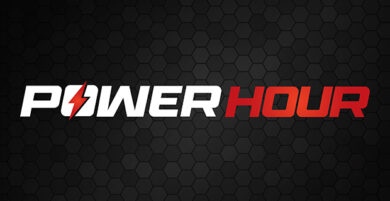Management styles that hurt your business — Part two
 My previous blog article was about two management styles that hurt your business. The first article focused on absentee ownership and how it prevents owners from really understanding the tone, attitude and culture of their dealership. This style also doesn’t allow for the operational and financial stability an owner expects and needs for growth and profitability. I wasn’t able to get to the second management style so I’ll do that now with this blog article.
My previous blog article was about two management styles that hurt your business. The first article focused on absentee ownership and how it prevents owners from really understanding the tone, attitude and culture of their dealership. This style also doesn’t allow for the operational and financial stability an owner expects and needs for growth and profitability. I wasn’t able to get to the second management style so I’ll do that now with this blog article.
The powersports industry can be just as exhilarating as it can be frustrating because of the seasonal nature of this business. In June, you’re eating steak and in December you’re checking under seat cushions for cash flow. The level of stress during those cycles is not all that different, only the situations that encourage that stress are, due mainly to a common denominator involved which for many, is staff and their performance.
How many times have you told someone on your staff to do something or how to do something and they keep getting it wrong … over and over again? Can you remember how many times you’ve talked to a manager about your concern over a staff member’s performance only to never see any change or improvement? Let’s be honest with ourselves, how many times have you said, while pulling out what little hair you have left on your head, “It won’t get done right unless I do it myself” or “If I don’t do it, it will never get done”? I know I’m not the only person who has thought this at one time or another.
When you’ve reached this point, there are two options available. The first option which is the most difficult, is to be a leader and teach, mentor and empower those employees. The second option, which is the easiest, is to criticize, tell employees what to do or complete the tasks they were supposed to do. This second option is also known as micromanagement, and that is the second management style that will hurt your business. This style of management is more damaging than absentee ownership because it crushes and kills the spirit of your staff and eventually, yourself.
I believe that micromanagement is often a result of an owner/manager with a strong need of control stemming from either insecurity, anxiety or a lack of trust. We have all experienced this from time to time, but how we deal with these emotions determines growth and prosperity or stagnation and despair. I’ve worked for leaders, and I’ve worked for micromanagers, and I can’t recall where things actually got better for a micromanager. Why? Because people with drive, ambition and talent never stay with a micromanager for very long. They move on to greener pastures where their talent and contributions are welcomed and appreciated. You may have heard the statement that good people don’t leave their job, they leave their manager. It’s true. On the other hand, people who tend to “just need a job” will stay in order to keep a paycheck and rarely contribute to growth and customer satisfaction, which makes your job more difficult.
The option of being a leader is more difficult because it involves the investment of your time, knowledge, patience and the willingness to empower your employees by giving them just enough rope to hang themselves but pulling the rope back before they go over the edge. While this investment can be trying, it also provides the strongest rewards as employees learn and grow and therefore contribute to the growth and profitability of your business. This also builds a strong team that will make your life a whole lot easier. This investment doesn’t always payoff, and that’s okay because the realization that the employee and the job are not the best fit for each other allows you to find a better suited employee, and your former staff member can find a position better suited for them.
The option of micromanaging is easier but only initially because there is no investment. It seems easier to just tell people what to do, how to do it or just finish what they were supposed to do, but what you’ve done is taken away responsibility from them. It may seem like a quicker fix to simply reprimand an employee and consistently watch what they’re doing in case they make more mistakes, but this not only demoralizes your staff, it stifles their drive and ambition. Micromanaging does little to reducing any stress an owner or manager has because it takes away valuable time needed to complete their own responsibilities. How can a micromanager ever make any headway trying to do their job and everyone else’s, and how long can someone keep that pace before completely burning out?
I haven’t met a successful micromanager, although I have seen some work their way out of a job, a business and good health. If you find that micromanagement has found its way into your dealership, take some time to see what it’s doing to your dealership and your staff. Providing direction and empowering your staff to contribute and take responsibility for their work will pay dividends for you and your business.
Bruce Marcia is the director of Bruce Marcia and Associates, a retail management consulting firm that specializes in assisting and supporting dealerships in the RV/marine and powersports industries. As a recognized troubleshooter with over 30 years of experience in inventory finance, dealership general management and as a district manager for a major OEM, Bruce has had the unique opportunity to understand and learn from all three important fields that make these industries function.
Contact: bruce@bm-associates.com
Website: http://www.bm-associates.com
Phone: 587/577-6264









Good article. Thank you for driving this home. It hurts so many businesses – not just in the powersports industry…
Thanks Steve. A stronger and healthier dealer network makes for a stronger and healthier powersports industry.